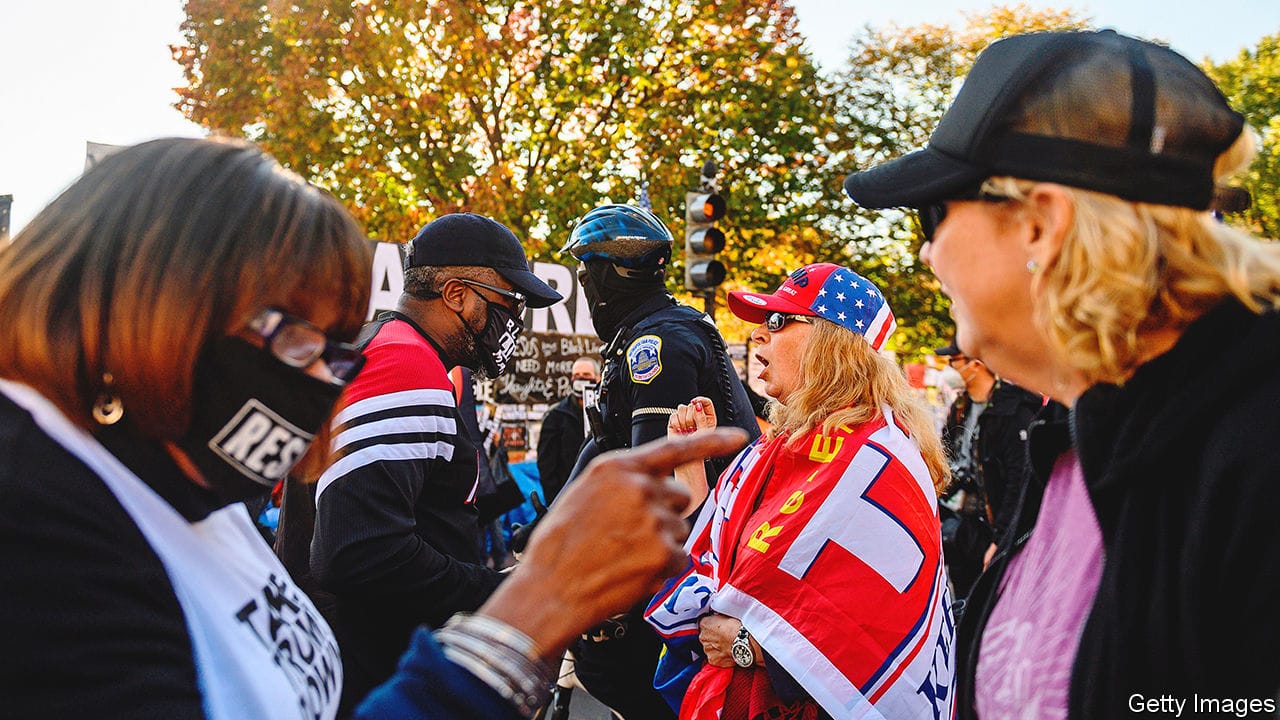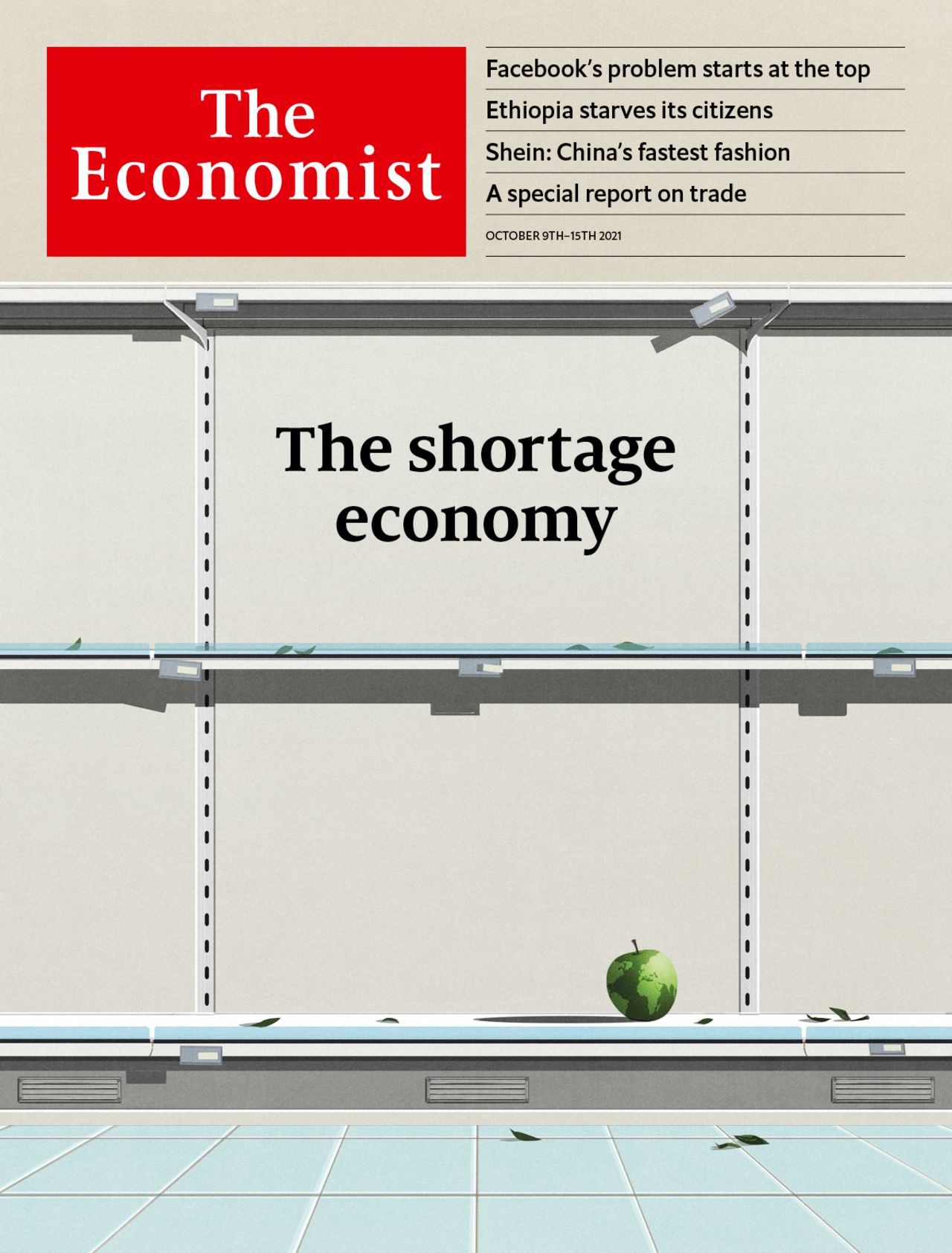America’s political scientists are worried about “lethal partisanship”
About 40% of partisans consider supporters of the other side to be downright evil

THE TAGLINE for the annual meeting of the American Political Science Association (APSA) held in Seattle last weekend read “Promoting Pluralism.” Under the sunny geometric windows of the city’s convention centre, and through the poorly lit rectangles of Zoom rooms, scholars met to discuss, among other things, the various threats to American democracy, and whether the country’s polarised political parties could peacefully coexist. Like experts on the use of nuclear weapons during the Cold War, the spectre of some disastrous future hung over the discussions and was made only slightly less alarming by the technical language used to describe it.
Scholars of American politics are particularly dismayed by rising levels of “affective polarisation,” the political science term for the hostility one person feels towards members of the other party relative to the feelings they have towards members of their own party. Levels of affective polarisation have risen more than two-fold since the 1970s when the American National Election Studies, a quadrennial academic survey started at the University of Michigan, began asking citizens to rate how they felt about members of either major party. In 1978, according to the survey, the difference between Americans’ ratings of members of their own and ratings of members of the other party on a 100-point “feeling thermometer” scale was 27 points. The gap had widened to 56 by 2020.
Lilliana Mason of Johns Hopkins University calls this phenomenon “identity-based” polarisation. In her 2018 book “Uncivil Agreement” Ms Mason crunched a mass of survey data to reveal how ideological, religious and racial identities have become “sorted” into overlapping mega-identities captured almost entirely by the words “Democrat” and “Republican.” One result, she concludes, is that isolated and warring tribes have become “relatively unresponsive to changing information or real national problems.”
This article appeared in the United States section of the print edition under the headline “Polarisation explorers”
United States October 9th 2021
- Why can’t America quit flirting with financial ruin?
- Why the latest series of Facebook leaks is more politically potent
- The incomes of America’s poorest are growing faster than those of its richest
- America’s political scientists are worried about “lethal partisanship”
- Chicago re-examines its origin story 150 years after the great fire
- President Biden is weighing how extensively to use drones
- Disciplined Democrats look likely to pass Joe Biden’s domestic agenda
More from United States

The Republicans’ policy platform previews the coming campaign
Social conservatives and fiscal hawks will be disappointed. Opponents of immigration will not

How do you solve a problem like Joe Biden?
The uproar over his candidacy reveals dysfunction afflicting both major parties

Joe Biden is failing to silence calls that he step aside
And some senior Democrats may merely be holding their fire
